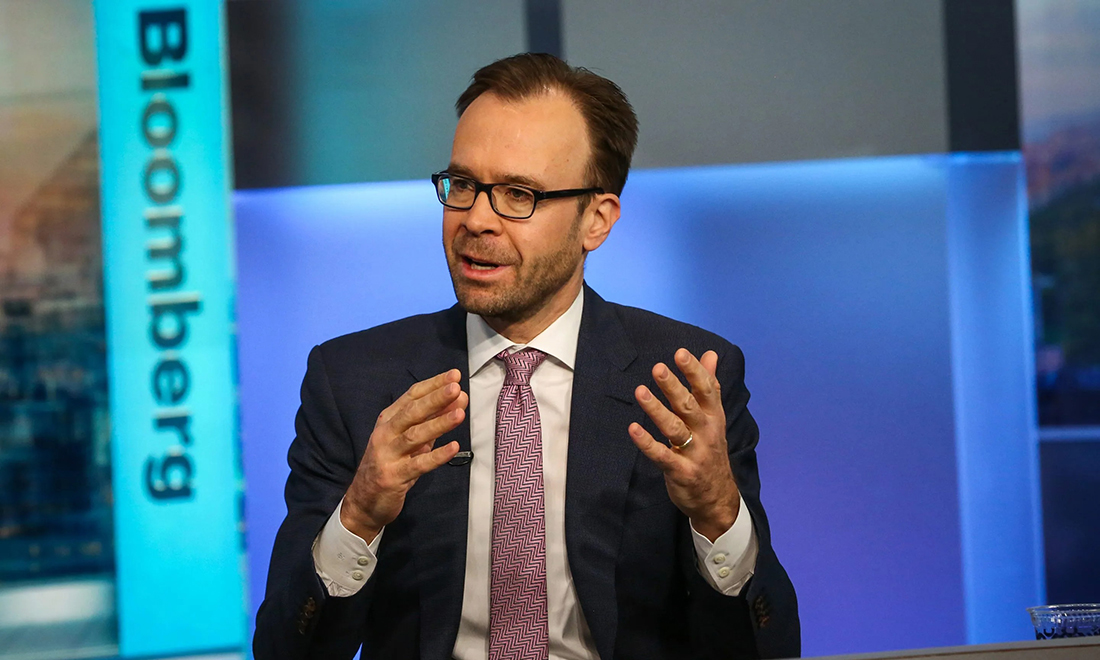
美聯(lián)儲(Federal Reserve)陷入了與通貨膨脹的斗爭中無法自拔,其政策的影響正在不斷提高美國出現(xiàn)經(jīng)濟衰退的可能性,。但是,,美國經(jīng)濟可能承受的后果仍然無法確定。
經(jīng)濟學(xué)家們用飛機的比喻來形容美國當前所面臨的局面,,認為美聯(lián)儲正在試圖緩慢降低經(jīng)濟引擎的速度,,從而減輕通脹,保證實現(xiàn)“軟著陸”,。
當然,,面對始終居高不下的通脹和如火如荼的俄烏沖突、歐洲愈演愈烈的能源危機等因素,,美國經(jīng)濟要想實現(xiàn)軟著陸將面臨挑戰(zhàn),。
甚至有人認為,美聯(lián)儲應(yīng)對通脹是一項不可能完成的任務(wù),,并且“硬著陸”,,也就是經(jīng)濟衰退,將不可避免,。
但高盛集團(Goldman Sachs)的首席經(jīng)濟學(xué)家簡·哈祖斯在9月5日發(fā)表的一份研究報告中表示,,他相信軟著陸依舊有可能實現(xiàn),只是著陸的過程可能充滿崎嶇,。
哈祖斯認為,,美國經(jīng)濟如果出現(xiàn)以下變化,,就能夠避免最糟糕的經(jīng)濟后果:第一,經(jīng)濟增長“低于趨勢水平”,;第二,,“勞動力市場再平衡”,失業(yè)率上升,;第三,,通貨膨脹大幅下降。
雖然高盛的經(jīng)濟學(xué)家們依舊認為,,美國明年有三分之一的概率出現(xiàn)輕度衰退,,但哈祖斯在9月5日指出,他看到了“令人鼓舞的跡象”,,表明經(jīng)濟正在朝著實現(xiàn)這三個目標的方向轉(zhuǎn)變,,并且有望實現(xiàn)軟著陸。
朝著正確的方向發(fā)展
首先,,有越來越多證據(jù)表明,,通脹壓力有所緩解,尤其是在產(chǎn)品價格方面,。哈祖斯認為,,這個趨勢有可能會持續(xù)下去。
他寫道:“大宗商品價格大幅下降,、美元走強和供應(yīng)鏈中斷的顯著改善,,都表明商品物價上漲情況會持續(xù)減弱?!?/p>
其次,,美國經(jīng)濟增長正處于“減速”階段,這對降低通脹至關(guān)重要,。哈祖斯指出,,美聯(lián)儲加息使美國平均30年固定抵押貸款利率超過6%,應(yīng)該有助于減少消費,,從而降低消費物價,。
他寫道:“總之,我們預(yù)測美國明年的經(jīng)濟增長依舊將遠低于趨勢水平,,我們?nèi)匀缓軡M意這個預(yù)測?!?/p>
最后,,哈祖斯指出,勞動力市場正在開始降溫,。過去四個月,,每位勞動者可以選擇的崗位數(shù)量,,或者崗位-勞動者差距,已經(jīng)減少了700,000個,,并且實際工資增長速度放緩,。
哈祖斯認為,這對美聯(lián)儲應(yīng)對通脹是一個“令人鼓舞的”好消息,,因為勞動力市場的“供需平衡”已經(jīng)開始好轉(zhuǎn),。
如果這些信號繼續(xù)朝著正確的方向發(fā)展,美聯(lián)儲就能夠放慢加息的步伐,,甚至停止加息,,而這將會提振經(jīng)濟和資產(chǎn)價格。
獨樹一幟
哈祖斯認為美國依舊有可能實現(xiàn)軟著陸,,這種觀點讓他成為投資銀行界的另類,。
許多大型投資銀行都認為,現(xiàn)在美國經(jīng)濟最有可能出現(xiàn)的結(jié)果是陷入衰退,。甚至有人將美國的經(jīng)濟衰退,,作為未來12個月的“基準情景”。
例如,,德意志銀行(Deutsche Bank)從今年4月以來一直認為,,美國發(fā)生“嚴重”經(jīng)濟衰退將是不可避免的。美國銀行(Bank of America)則在7月表示,,美國今年可能會陷入“輕度衰退”,。
富國銀行(Wells Fargo)的高級全球市場策略師斯科特·雷恩也曾經(jīng)在8月31日的一份研究報告中指出,美聯(lián)儲應(yīng)對通貨膨脹的堅定立場最終將引發(fā)經(jīng)濟衰退,。上周,,美聯(lián)儲主席杰羅姆·鮑威爾在懷俄明州杰克遜霍爾召開的美聯(lián)儲年度會議上的鷹派言論,強調(diào)了美聯(lián)儲的這種立場,。
他寫道:“美聯(lián)儲的發(fā)言人稱,,他們更愿意犧牲一定程度的經(jīng)濟增長,來換取通脹下降,。我們認為這將會導(dǎo)致經(jīng)濟衰退,,使失業(yè)率升高?!?/p>
野村證券(Nomura)的高級美國經(jīng)濟學(xué)家羅布·登特在9月2日發(fā)表的一份研究報告中表示,,他預(yù)計,“頑固的通貨膨脹”將迫使美聯(lián)儲在即使經(jīng)濟疲軟的情況下繼續(xù)加息,,因此美國將在今年第四季度開始陷入衰退,。
瑞銀集團(UBS)用于確定美國經(jīng)濟衰退概率的工具也顯示經(jīng)濟衰退已經(jīng)近在眼前。這個工具基于三個經(jīng)濟模型,,分別是一個經(jīng)濟硬數(shù)據(jù)模型,,考慮到失業(yè)率和零售銷售額等具體結(jié)果,,一個跟蹤美國國債收益率曲線的模型,以及一個基于可用企業(yè)信貸數(shù)據(jù)的模型,。今年夏天,,基于這三個模型預(yù)測的經(jīng)濟衰退概率提高了20個百分點,達到60%,。
當然,,哈祖斯并非華爾街唯一一位認為美國不一定會陷入經(jīng)濟衰退的經(jīng)濟學(xué)家。
美國聯(lián)信銀行(Comerica Bank)的首席經(jīng)濟學(xué)家比爾·亞當斯上周對《財富》雜志表示:“我預(yù)測依舊有多種方法可以使美國經(jīng)濟繼續(xù)艱難前行,,避免明年的經(jīng)濟衰退,。”
亞當斯稱,,如果大宗商品價格從最近的高點大幅下降,,美聯(lián)儲就能夠在未來幾個季度放慢加息步伐,從而實現(xiàn)軟著陸,。
然而,,他指出:“實現(xiàn)這個結(jié)果的概率與六個月前相比大幅下降?!保ㄘ敻恢形木W(wǎng))
譯者:劉進龍
審校:汪皓
美聯(lián)儲(Federal Reserve)陷入了與通貨膨脹的斗爭中無法自拔,,其政策的影響正在不斷提高美國出現(xiàn)經(jīng)濟衰退的可能性。但是,,美國經(jīng)濟可能承受的后果仍然無法確定,。
經(jīng)濟學(xué)家們用飛機的比喻來形容美國當前所面臨的局面,認為美聯(lián)儲正在試圖緩慢降低經(jīng)濟引擎的速度,,從而減輕通脹,,保證實現(xiàn)“軟著陸”。
當然,,面對始終居高不下的通脹和如火如荼的俄烏沖突,、歐洲愈演愈烈的能源危機等因素,美國經(jīng)濟要想實現(xiàn)軟著陸將面臨挑戰(zhàn),。
甚至有人認為,,美聯(lián)儲應(yīng)對通脹是一項不可能完成的任務(wù),并且“硬著陸”,,也就是經(jīng)濟衰退,,將不可避免。
但高盛集團(Goldman Sachs)的首席經(jīng)濟學(xué)家簡·哈祖斯在9月5日發(fā)表的一份研究報告中表示,,他相信軟著陸依舊有可能實現(xiàn),,只是著陸的過程可能充滿崎嶇。
哈祖斯認為,美國經(jīng)濟如果出現(xiàn)以下變化,,就能夠避免最糟糕的經(jīng)濟后果:第一,經(jīng)濟增長“低于趨勢水平”,;第二,,“勞動力市場再平衡”,失業(yè)率上升,;第三,,通貨膨脹大幅下降。
雖然高盛的經(jīng)濟學(xué)家們依舊認為,,美國明年有三分之一的概率出現(xiàn)輕度衰退,,但哈祖斯在9月5日指出,他看到了“令人鼓舞的跡象”,,表明經(jīng)濟正在朝著實現(xiàn)這三個目標的方向轉(zhuǎn)變,,并且有望實現(xiàn)軟著陸。
朝著正確的方向發(fā)展
首先,,有越來越多證據(jù)表明,,通脹壓力有所緩解,尤其是在產(chǎn)品價格方面,。哈祖斯認為,,這個趨勢有可能會持續(xù)下去。
他寫道:“大宗商品價格大幅下降,、美元走強和供應(yīng)鏈中斷的顯著改善,,都表明商品物價上漲情況會持續(xù)減弱?!?/p>
其次,,美國經(jīng)濟增長正處于“減速”階段,這對降低通脹至關(guān)重要,。哈祖斯指出,,美聯(lián)儲加息使美國平均30年固定抵押貸款利率超過6%,應(yīng)該有助于減少消費,,從而降低消費物價,。
他寫道:“總之,我們預(yù)測美國明年的經(jīng)濟增長依舊將遠低于趨勢水平,,我們?nèi)匀缓軡M意這個預(yù)測,。”
最后,,哈祖斯指出,,勞動力市場正在開始降溫。過去四個月,每位勞動者可以選擇的崗位數(shù)量,,或者崗位-勞動者差距,,已經(jīng)減少了700,000個,并且實際工資增長速度放緩,。
哈祖斯認為,,這對美聯(lián)儲應(yīng)對通脹是一個“令人鼓舞的”好消息,因為勞動力市場的“供需平衡”已經(jīng)開始好轉(zhuǎn),。
如果這些信號繼續(xù)朝著正確的方向發(fā)展,,美聯(lián)儲就能夠放慢加息的步伐,甚至停止加息,,而這將會提振經(jīng)濟和資產(chǎn)價格,。
獨樹一幟
哈祖斯認為美國依舊有可能實現(xiàn)軟著陸,這種觀點讓他成為投資銀行界的另類,。
許多大型投資銀行都認為,,現(xiàn)在美國經(jīng)濟最有可能出現(xiàn)的結(jié)果是陷入衰退。甚至有人將美國的經(jīng)濟衰退,,作為未來12個月的“基準情景”,。
例如,德意志銀行(Deutsche Bank)從今年4月以來一直認為,,美國發(fā)生“嚴重”經(jīng)濟衰退將是不可避免的,。美國銀行(Bank of America)則在7月表示,美國今年可能會陷入“輕度衰退”,。
富國銀行(Wells Fargo)的高級全球市場策略師斯科特·雷恩也曾經(jīng)在8月31日的一份研究報告中指出,,美聯(lián)儲應(yīng)對通貨膨脹的堅定立場最終將引發(fā)經(jīng)濟衰退。上周,,美聯(lián)儲主席杰羅姆·鮑威爾在懷俄明州杰克遜霍爾召開的美聯(lián)儲年度會議上的鷹派言論,,強調(diào)了美聯(lián)儲的這種立場。
他寫道:“美聯(lián)儲的發(fā)言人稱,,他們更愿意犧牲一定程度的經(jīng)濟增長,,來換取通脹下降。我們認為這將會導(dǎo)致經(jīng)濟衰退,,使失業(yè)率升高,。”
野村證券(Nomura)的高級美國經(jīng)濟學(xué)家羅布·登特在9月2日發(fā)表的一份研究報告中表示,,他預(yù)計,,“頑固的通貨膨脹”將迫使美聯(lián)儲在即使經(jīng)濟疲軟的情況下繼續(xù)加息,因此美國將在今年第四季度開始陷入衰退,。
瑞銀集團(UBS)用于確定美國經(jīng)濟衰退概率的工具也顯示經(jīng)濟衰退已經(jīng)近在眼前,。這個工具基于三個經(jīng)濟模型,,分別是一個經(jīng)濟硬數(shù)據(jù)模型,考慮到失業(yè)率和零售銷售額等具體結(jié)果,,一個跟蹤美國國債收益率曲線的模型,,以及一個基于可用企業(yè)信貸數(shù)據(jù)的模型。今年夏天,,基于這三個模型預(yù)測的經(jīng)濟衰退概率提高了20個百分點,,達到60%。
當然,,哈祖斯并非華爾街唯一一位認為美國不一定會陷入經(jīng)濟衰退的經(jīng)濟學(xué)家。
美國聯(lián)信銀行(Comerica Bank)的首席經(jīng)濟學(xué)家比爾·亞當斯上周對《財富》雜志表示:“我預(yù)測依舊有多種方法可以使美國經(jīng)濟繼續(xù)艱難前行,,避免明年的經(jīng)濟衰退,。”
亞當斯稱,,如果大宗商品價格從最近的高點大幅下降,,美聯(lián)儲就能夠在未來幾個季度放慢加息步伐,從而實現(xiàn)軟著陸,。
然而,,他指出:“實現(xiàn)這個結(jié)果的概率與六個月前相比大幅下降?!保ㄘ敻恢形木W(wǎng))
譯者:劉進龍
審校:汪皓
The Federal Reserve is locked in a battle with inflation, and the effects of its policies are increasing the odds of a recession. But the outcome for the American economy is far from set.
Economists use an aircraft analogy to describe what the U.S. is facing, arguing the Fed is attempting to slowly power down the economy’s engine, thereby reducing inflation and ensuring a “soft landing.”
Of course, with inflation and the war in Ukraine raging on, the European energy crisis looking worse day by day, a soft landing could be a challenge.
Some even argue that the Fed faces an impossible task in its fight against inflation, and that a “hard landing,” also known as a recession, is inevitable.
But Jan Hatzius, Goldman Sachs’ chief economist, said in a September 5 research note that he believes a soft landing is still possible, even if the flight path is bumpy.
Hatzius argues that the U.S. economy can avoid the worst of economic outcomes if it experiences 1) “below-trend” growth, 2) a “rebalancing of the labor market” that involves rising unemployment, and 3) a substantial decline in inflation.
While Goldman’s economists still argue there’s a one-in-three probability of a mild U.S. recession over the next year, Hatzius said on September 5 that he is seeing “encouraging signs” the economy is moving toward all three of these goals—and a soft landing.
Moving in the right direction
First, there’s growing evidence that inflationary pressures are easing, particularly when it comes to product prices. And that trend is likely to continue, Hatzius said.
“Sharply lower commodity prices, a stronger dollar, and large improvements in supply-chain disruptions all suggest that goods price inflation will continue to abate,” he wrote.
Second, U.S. economic growth is in the midst of a “slowdown” that is critical to reducing inflation. Hatzius noted that the Fed’s interest rate hikes have pushed the average 30-year fixed-mortgage rate in the U.S. above 6%, which should help reduce spending and, in turn, consumer prices.
“All told, we remain comfortable with our forecast that U.S. growth will remain well below trend over the next year,” Hatzius wrote.
Finally, Hatzius noted that the labor market is beginning to cool. The number of jobs available per worker, also known as the jobs-worker gap, has dropped by 700,000 over the past four months, and real wage growth is slowing.
That’s “encouraging” news for the Fed’s fight against inflation, the economist argued, as “the supply-demand balance” in the labor market is beginning to improve.
If these signals continue to trend in the right direction, it could enable the Fed to slow the pace of its interest rate hikes, or even stop them altogether, which would boost the economy and asset prices.
Standing out from the crowd
Hatzius’s view that a soft landing is still possible puts him on the fringe in the investment banking world.
Many major investment banks argue that a recession is now the most likely outcome for the U.S. economy. And some have gone a step further, making a U.S. recession their “base case” over the next 12 months.
Deutsche Bank, for example, has argued since April that a “major” recession is inevitable in the U.S. And Bank of America said in July that it now suspects a “mild recession” is coming this year.
Scott Wren, a senior global market strategist at Wells Fargo, also wrote in an Aug. 31 research note that the Fed’s firm stance against inflation—which was emphasized by Chair Jerome Powell’s hawkish comments at the Fed’s annual conference in Jackson Hole, Wyo., last week—will ultimately spark a recession.
“The Fed speakers are saying that they are more than willing to give up a good degree of economic growth in order to bring down inflation. We believe that will likely result in a recession and a higher rate of unemployment,” he wrote.
Nomura’s senior U.S. economist Rob Dent also said in a research note on September 2 that he expects a recession will begin in the fourth quarter of this year as “entrenched inflation” will force the Fed to continue raising rates even as the economy weakens.
And UBS’s tool for determining the likelihood of a U.S. recession, which is based on three economic models—a hard economic data model that factors in concrete outputs like the unemployment rate and retail sales, a model that tracks the yield curve of U.S. Treasuries, and a model based on available corporate credit data—shows a looming downturn as well. Over the summer, the probability of a recession based on these three models rose 20 percentage points to 60%.
Still, Hatzius is far from the only Wall Street economist arguing that a recession isn’t guaranteed.
“I can foresee ways that the economy could still muddle through and avoid a recession over the next year,” Bill Adams, Comerica Bank’s chief economist, told Fortune last week.
Adams said that if commodity prices decline substantially from their recent highs, the Fed might be able to slow the pace of its interest rate hikes in coming quarters, enabling a soft landing.
However, he noted that “the path to that outcome is much narrower than it looked six months ago.”






